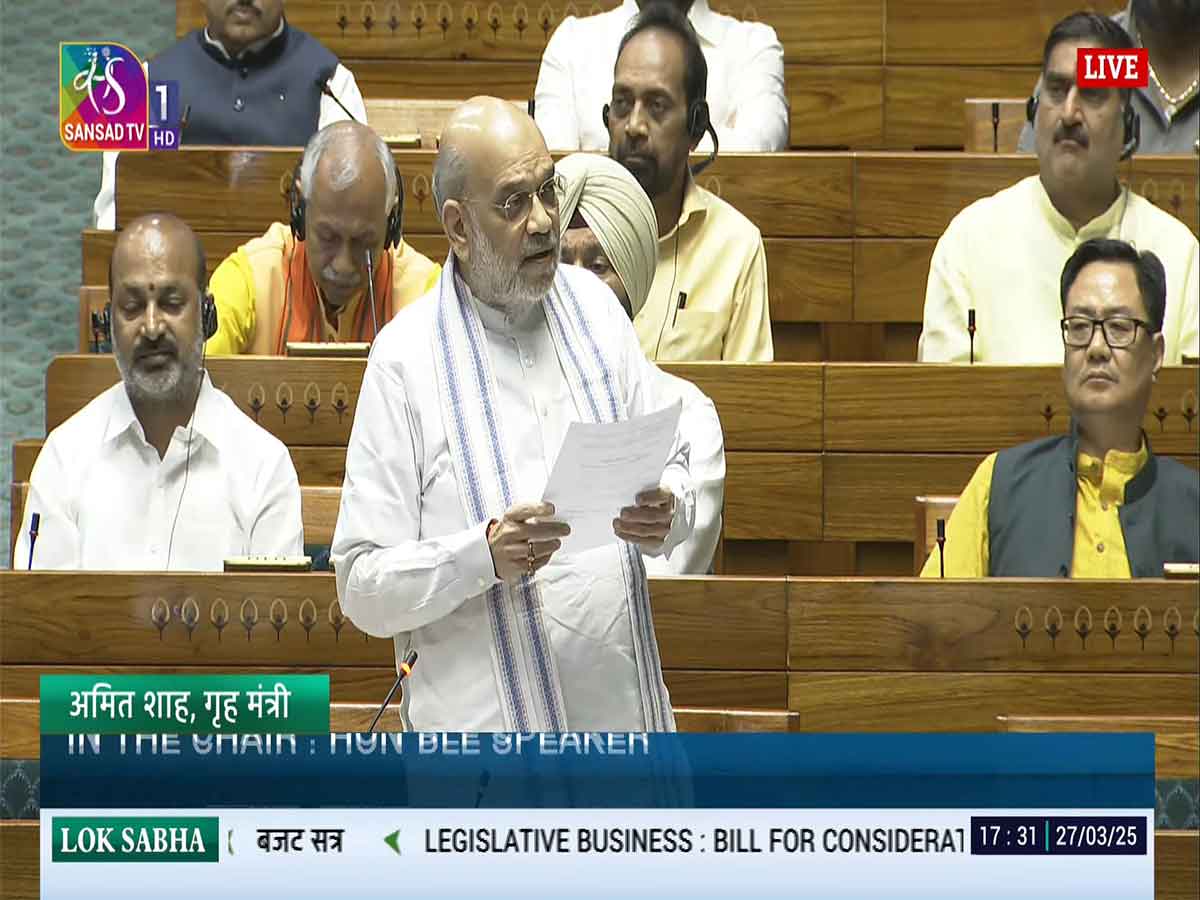

New Delhi, March 27: Union Home Minister Amit Shah stated on Thursday that the Immigration and Foreigners Bill, 2025, will strengthen India's internal security while addressing the issue of overlapping and conflicting laws.
Responding to the debate on the bill in the Lok Sabha, Shah emphasized that India is not a "Dharamshala" (rest house) and that individuals posing a threat to national security will not be allowed to enter the country.
"Those who pose a threat to national security will not be allowed entry. This nation is not a 'Dharamshala.' However, anyone who comes to contribute to the development of our nation is always welcome," Shah remarked. The bill was later passed in the House.
He also addressed the issue of refugees and migrants, specifically mentioning groups like the Rohingyas and Bangladeshis. He assured that strict action would be taken against individuals who come to India to create unrest.
"India has become the fifth-largest economy in the world over the last decade. It is now a hub for manufacturing, and it is natural for people from across the globe to come here. However, the number of people taking refuge for personal gain and making the country unsafe has increased. Whether they are Rohingyas or Bangladeshis, if they come to India to disrupt peace, strict action will be taken," he stated.
Shah stressed that immigration is not a separate issue and is deeply connected to national security. "It is crucial to know who is entering our borders. We will monitor closely anyone who poses a threat to the country’s security," he added.
Referring to the Citizenship Amendment Act (CAA), Shah explained that it allows people from six oppressed communities in neighboring countries to seek refuge in India. He further elaborated on India's unique position as a "geo-cultural nation," citing examples such as the safety of Persians and Jews who have found refuge in the country throughout history.
"India is not just a geo-political nation. Our nation has provided sanctuary to various communities throughout history. The smallest minority groups, like the Jews, who fled from Israel, have found safety here. Immigration is linked to national security, and we must know who is entering our country, for how long, and for what reasons. These principles are not new; they have been outlined in various laws. With the Immigration and Foreigners Bill, we aim to implement a comprehensive system to track foreigners entering the country. This will help us foster development while keeping a watchful eye on those who may pose a security threat," he concluded.